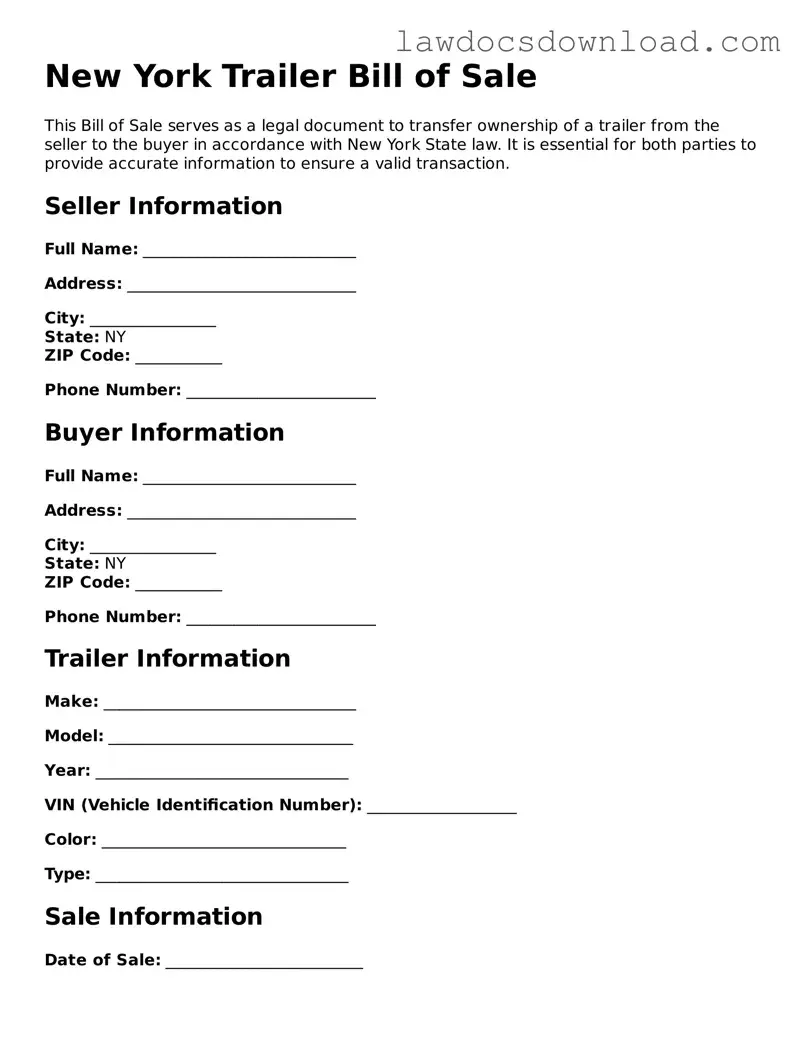Legal New York Trailer Bill of Sale Form
The New York Trailer Bill of Sale form is a critical document that acts as a proof of sale and transfer of ownership of a trailer from the seller to the buyer. This legal form is important not only for the purpose of recording the sale but also for registration and titling of the trailer in New York. Without this document, the process of legally transferring a trailer can be complicated and invalid.
Launch Trailer Bill of Sale Editor Here

Legal New York Trailer Bill of Sale Form
Launch Trailer Bill of Sale Editor Here

Launch Trailer Bill of Sale Editor Here
or
Free Trailer Bill of Sale
Get this form done in minutes
Complete your Trailer Bill of Sale online and download the final PDF.